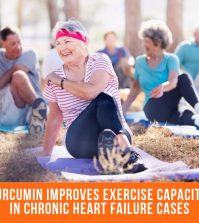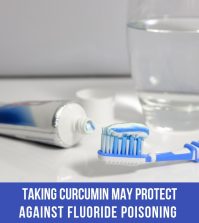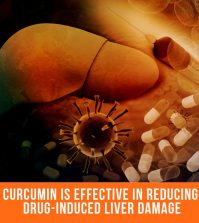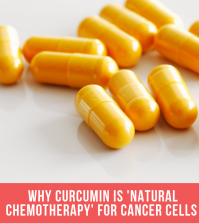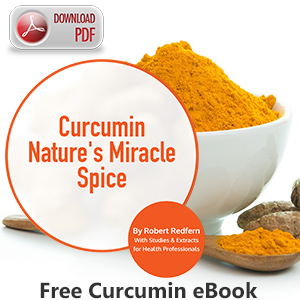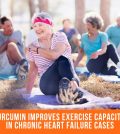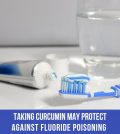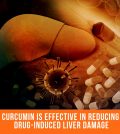Curcumin’s Anti-Cancer Properties
A list of Curcumin’s health-promoting benefits wouldn’t be complete without the addition of Curcumin’s anti-cancer properties. Curcumin’s anti-cancer properties are many and include its ability to mimic estrogen, interfere with cytokine signals, and perform as a powerful antioxidant capable of destroying free radicals.
Estrogen Mimicker
A unique quality that sets apart Curcumin’s anti-cancer properties from the majority of other supplement’s anti-cancer properties is Curcumin’s ability to actually keep chemicals from entering cells. More importantly, is Curcumin’s ability to counteract the pesticides that mimic estrogen. These pesticides include DDT and dioxin, two of the deadliest toxins known to man.
Curcumin’s anti-cancer properties allow Curcumin to compete for the same cellular doorway as estrogen and estrogen-mimickers and has the power to block access to the cell, thereby protecting the cell from unwanted intruders.
Just like estrogen, estrogen-mimicking chemicals encourage the growth of breast cancer. When human breast cancer cells were studied it was discovered Curcumin reversed the cancer growth caused by 17b-estradiol, (estrogen hormone replacement) by 98%. Curcumin also blocked DDT’s stimulating effects on breast cancer by about 75%.
The combination of chlordane and endosulfane, two other estrogen mimickers, was found to promote breast cancer cell growth by nearly as much as 17b-estradiol. Curcumin’s anti-cancer properties reversed that growth by approximately 90%. Adding genistein, a soy phytochemical, reversed growth 100%!
This unique ability of Curcumin to block other chemicals has been documented. Curcumin’s anti-cancer properties were tested against carbon tetrachloride (a solvent in varnish), paraquat (weed killer), and nitrosamines (found in cooked meat and “lunch” meats). Curcumin was effective at blocking the effects of each chemical. Studies where mice were treated with diethylnitrosamine show how beneficial Curcumin’s anti-cancer properties are. These mice usually develop liver cancer; however, Curcumin brought the percentage of animals with cancer down from 100% to 38%. Tumors dropped by 81%!
Cytokines
Curcumin blocks NF-kB, a multiprotein complex, which evidence links to the growth of cancer cells. NF-kB is put into action by cytokines, the body’s chemical messengers. Cytokines work to enhance the immune system, but they are also responsible for turning on the signals that instruct cells to reproduce and grow, including cancer cells. Curcumin interferes with these signals and effectively stops the growth of cancer cells by kinase pathways.
Antioxidants
Curcumin’s anti-cancer properties can be utilized for cancer prevention. Turmeric, which remember contains Curcumin, is an antioxidant and has been used for centuries as a food preservative because it does such a good job of preventing food from spoiling or oxidizing. The Curcumin in turmeric does the same thing in our bodies; protects us from cancer causing, oxidizing, free radicals. Free radicals create cancer by altering and mutating DNA and activating cancer genes.
Radiation is another source of DNA damage; damage created partially through free radicals. A recent study, conducted under laboratory conditions, demonstrated Curcumin protected bacteria from a deadly amount of radiation with almost no harm incurred. The DNA bacteria survived almost completely undamaged.
As more new developments like these emerge from studying Curcumin’s anti-cancer properties there will be renewed hope and relief for those suffering with cancer and its aftermath.
References:
Chlordane found in foods decades after pesticide use. Press release of the American Chemical Society, May 2, 2000.
Dow Brand Dioxin: Dow makes you poison great things. J Weinberg, ed. Greenpeace report.
Venkatesan N. 2000. Pulmonary protective effects of curcumin against paraquat toxicity. Life Sci 66(2):PL21-28.
Verma SP, et al. 1997. Curcumin and genistein, plant natural products, show synergistic inhibitory effects on the growth of human breast cancer MCF-7 cells induced by estrogenic pesticides. Biochem Biphy Res Comm 233:692-96.
Verma SP, et al. 1998. The inhibition of the estrogenic effects of pesticides and environmental chemicals by curcumin and isoflavonoids. Environ Health Perpect 106:807-12
Park EJ, et al. 2000. Protective effect of curcumin in rat liver injury induced by carbon tetrachloride. J Pharm Pharmacol 52:437-40.


